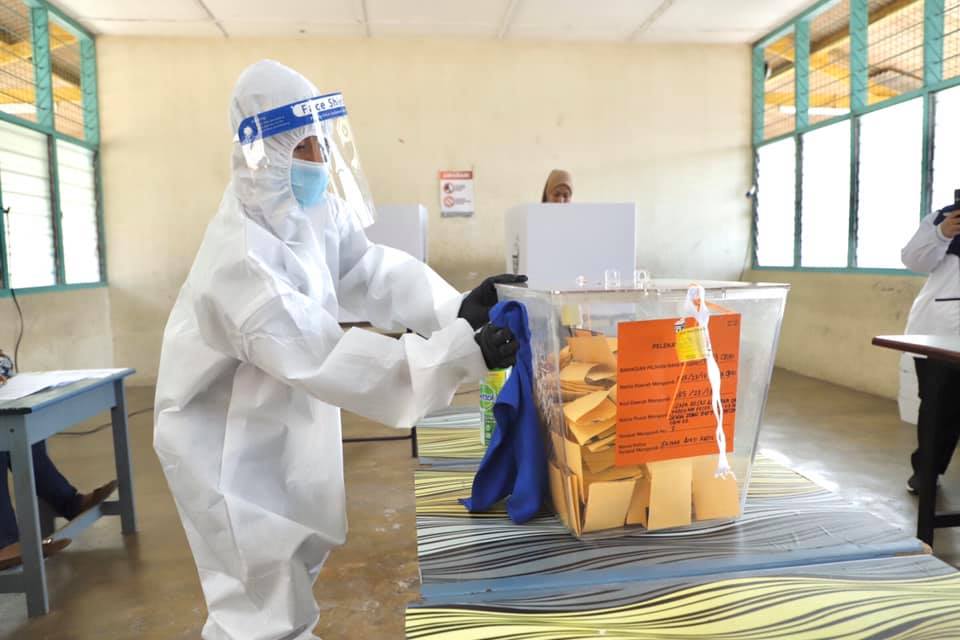The Election Commission (EC) may jeopardise the lives of the people of Sabah, which has the poorest health infrastructure in Malaysia, by not allowing postal voting for the upcoming Sabah state election during the Covid-19 pandemic.
There are an estimated 250,000 Sabah voters living in the peninsula. Sabah is mostly green status, except for two locally transmitted Covid-19 cases in Kota Kinabalu and one in Tawau officially reported in the past 14 days as of August 21.
The entry of thousands of people from the peninsula – which continues to report fresh coronavirus outbreaks – into Sabah for the election risks transporting the virus deep into the rural areas and interiors of the state.
What are the government’s plans to mitigate this? Will the Ministry of Health (MOH) require testing upon arrival in Sabah and a subsequent three-day quarantine pending test results? Sabah currently doesn’t require arrivals to test for coronavirus or to undergo quarantine, as people only have to fill in an electronic form before boarding their flight to the East Malaysian state.
Voters are expected to return to Sabah at about the same time before the September 26 election, but health authorities will not be able to run 250,000 tests in a few days. Deputy Health Minister Aaron Ago Dagang said MOH only does about 5,000 to 6,000 coronavirus tests daily (and that’s for the entire country), while the nationwide testing capacity is 38,600 tests a day.
How many PCR machines does Sabah have? The Sarawak Disaster Management Committee said Sarawak used to have just one screening centre in Kuching at the start of the outbreak, with most samples sent to Kuala Lumpur and test results taking four to five days. Private companies have since donated four PCR machines for Kuching, one in Miri, and two in Bintulu.
What happens if voters test positive for coronavirus upon arrival in Sabah and are sent to hospital? Will they be denied their right to vote then, even if they are well enough to cast their ballots as most will likely show no or mild symptoms? What happens if voters are prevented from getting on a flight to Sabah because they have flu-like symptoms?
If authorities decide to use the quicker antigen rapid test for Sabah arrivals ahead of the state election, this carries the large possibility of inaccurate test results, which has previously been reported by the Sarawak government. Sarawak’s current policy is to swab arrivals from West Malaysia, Sabah, and Labuan for RT-PCR testing and to release them from home or hotel quarantine upon negative results.
The government cannot allow 250,000 people, or even tens of thousands, to enter Sabah untested. Doing so risks devastating the under-developed state of Sabah with extremely limited public health capacity.
EC deputy chairman Azmi Sharom reportedly said it was not possible to allow mail-in voting for peninsula-based Sabahan voters in the Sabah state election because the existing system could not accommodate a large number of postal voters, besides the increase of seats in the Sabah state legislative assembly from 60 to 73. Azmi also hoped to use coronavirus preventive measures in the Chini by-election for the Sabah election, but with due respect, a statewide poll involves a great deal more people than an election in one state constituency.
South China Morning Post reported that postal voting may result in delays, such as the 2018 general election when postal ballots only arrived after polling day. The EC could perhaps move up the nomination date from September 12 to the end of August and then send postal ballots immediately to all Sabah voters living in the peninsula, so that voters have enough time to fill the ballot and deliver it back to returning officers by polling day on September 26.
Ideally, postal voting should be allowed for all Sabah voters (not just outstation ones) to minimise movement, especially between the city and rural districts. But if this can’t be done, then mail-in voting should be extended to outstation voters at least.
Sarawak’s state election is due by September next year. There is also talk of the 15th general election happening by the end of the year or early next year. The coronavirus pandemic is expected to stay for two years, according to the World Health Organization. Meanwhile, the United States is preparing for an unprecedented surge of mail-in ballots for its November election.
The EC should implement widespread postal voting for the Sabah state election, learn lessons from it, and prepare to expand mail-in voting for the general election.
The risk of Sabah turning into a red state is very real if the government prohibits hundreds of thousands of Sabahans from voting by mail.

Boo Su-Lyn is CodeBlue editor-in-chief. She is a libertarian, or classical liberal, who believes in minimal state intervention in the economy and socio-political issues.








